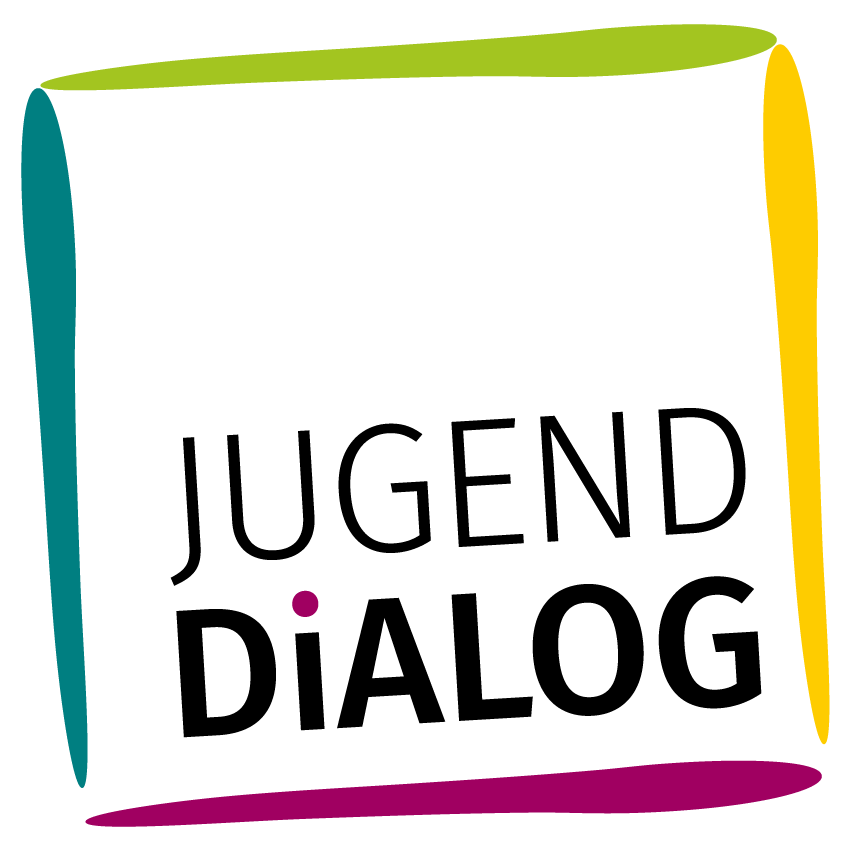In the European Union
In the European Union
Throughout the European Union (EU), young people engage in the EU Youth Dialogue with political leaders and discuss issues and concerns that are important to them. At EU Youth Conferences, EU Youth Representatives meet with political decision makers in the EU and discuss the concerns and demands of young people brought from their Member States. In this way, political decision-makers of the EU can take young people’s concerns and demands into account in their political decisions.
EU Youth Dialogue & Trio Presidency
What does the Trio Presidency have to do with young people and the EU Youth Dialogue? Watch this:
The 10th cycle of the EU Youth Dialogue runs from 1 July 2023 to 31 Dezember 2024. It is entitled “We need youth”. The aim of the cycle is to realise a Youth Goals #3 “Inclusive societies” throughout the European Union.
The 10th cycle of the EU Youth Dialogue is linked to the trio presidency of Spain – Belgium – Hungary in the Council of the European Union. The EU Youth Dialogue and the Trio Presidency last 18 months. The demands and ideas of young people from the EU Youth Dialogue are passed on to representatives of the Council of the European Union. In this way, the demands and ideas of young people can be incorporated into the political decisions of the Council of the European Union.
You want to participate in the EU Youth Dialogue?
#EU Youth Delegates
Three EU Youth Delegates are selected in each EU Member State. For a cycle of 18 months they represent the voice of young people in their Member States. The EU Youth Delegates take the concerns and demands of young people from Germany to the EU Youth Conferences and discuss them with political decision makers, such as representatives of the youth ministries of the European Member States and representatives of the European Commission.
#EU Youth Conferences
The EU Youth Conferences are held every six months in a different Member State. There the EU Youth Delegates from all the EU Member States come together with representatives of youth ministries from the EU Member States and EU institutions. Together they discuss the results and demands from the Member States and their political implementation.
#EU Online Surveys
The EU-wide online surveys ask questions on the topics of the current Youth Dialogue cycle. The results are collected at EU level and discussed with policy makers at EU Youth Conferences. This enables policy-makers to take young people’s concerns and opinions into account in their political decisions. In Germany, the results of the surveys are also used as inputs for Youth Dialogue formats – e.g. Dialogue Events with politicians or workshops.
Explanation of terms
This section explains the most important terms that are important in the EU Youth Dialogue:
Council of the European Union
At the Council of the European Union (short: Council of the EU), also known as the Council of Ministers, ministers from the European Union come together and organise themselves in different configurations according to their political specialisations. This means that ministers meet in a group responsible for the same policy area in their respective member states. The EU Council of Youth Ministers brings together all ministers responsible for youth in the individual EU Member States.
EU Council Presidency and Trio Presidency
Every 6 months, the EU Council Presidency, and thus the country that leads the work of the Council of the EU, changes. To ensure greater continuity of work, three member states always work together and form a so-called trio presidency, which lasts 18 months. The cycles of the EU Youth Dialogue are structured in the same way and are connected to the Trio-presidencies.
EU Council conclusions and resolutions
Conclusions and resolutions are official documents adopted by the Council of the EU and contain political declarations of intent and expressions of will agreed by the Member States.
Conclusions are not legally binding and do not need to be implemented. They are the weakest form of a common political statement of intent by EU Member States.
Resolutions are not legally binding either and do not need to be implemented. However, the objectives and actions described in resolutions and their implementation are usually reviewed, e.g. through reports from the member states to the EU. They are therefore somewhat more binding than Council conclusions.
The EU Youth Strategy
With the EU Youth Strategy 2019 – 2027, the EU Youth Ministers have agreed on a common framework for their European youth policy. The EU Youth Dialogue is a youth participation instrument for implementing the EU Youth Strategy in the EU Member States. The EU Youth Strategy focusses on the areas “Engage – Connect – Empower”.
The European Steering Group
The European Steering Group coordinates the EU Youth Dialogue at European level. The European Steering Group is composed of youth representatives and political and administrative officials that meet regularly during the 18 months of the EU Youth Dialogue cycle. The youth is represented by the European Youth Forum and the three National Youth Councils of the respective trio presidency. Political decision makers in the European Steering Committee are represented by the European Commission as well as the Ministries of Youth of the respective trio presidency.

